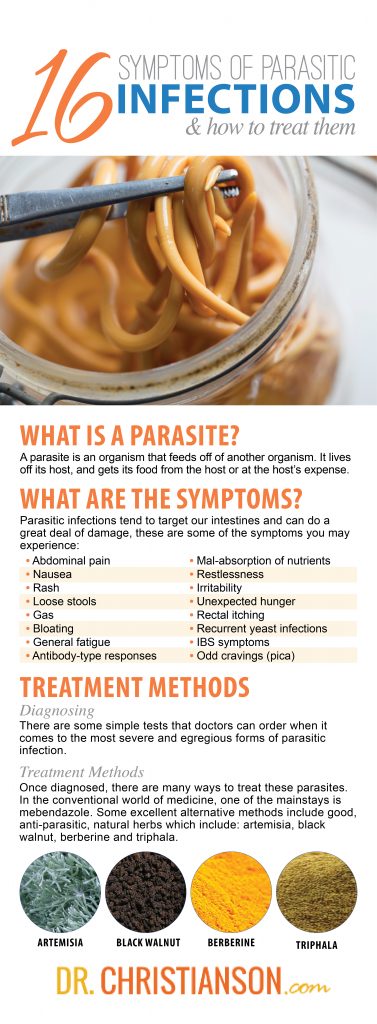Which parasites cause problems?
When it comes to doing damage to our bodies, there are actually 12 main parasites2 that we need to think about. These are the ones that can cause damage to our bodies, and can lead to all of the symptoms that I have mentioned above.
1. Tapeworms
This is the one you might have heard of the most in movies and television, where someone has a tapeworm inside of them to help them eat more. Many tapeworm infestations in the body can lead to no symptoms, but can result in pain and loss of B12 vitamins.
2. Human Pinworms
These are the most common in the United States. Human pinworms live in the small intestine, and can lead to appendicitis in young children.
3. Ascaris
This is one of the largest parasites that can live inside humans. Their presence in the body can lead to many long-term symptoms and afflictions.
4. Hookworms
These parasites can be spread by soil contaminated by human feces. It can lead to diarrhea, nausea, vomiting, and other pains.
5. Intestinal Flukes
Parasites like these are often transmitted from an intermediary host, like a fish or a vegetable. When someone consumes one of these undercooked, they may be at risk for developing this parasite.
6. Microsporidia
This is a spore-forming parasite, which can result in chronic non-bloody diarrhea, weight loss, abdominal pain, nausea, vomiting, and malnourishment.
7. Balantidiasis
This parasite comes to us through pigs, so it is particularly susceptible to those who work with them (like farmers).
8. Dientamoeba fragilis
Caused by human-to-human contact, this parasite can result in abdominal pain, weight loss, headaches, and more.
9. Giardiasis
Always check your drinking water. This one is caused by tainted water, and can have unfortunate symptoms (like diarrhea) lasting for up to three weeks.
10. Entamoeba histolytica
This parasite can cause tissue destruction, as well as bloody diarrhea.
11. Cryptosporidiosis
A highly-infectious parasite that can result in symptoms for up to 4 weeks.
12. Cystoisosporiasis
This final intestinal parasite can cause the same symptoms as the ones before it. Believe me, you do not want any of these in your body.

















